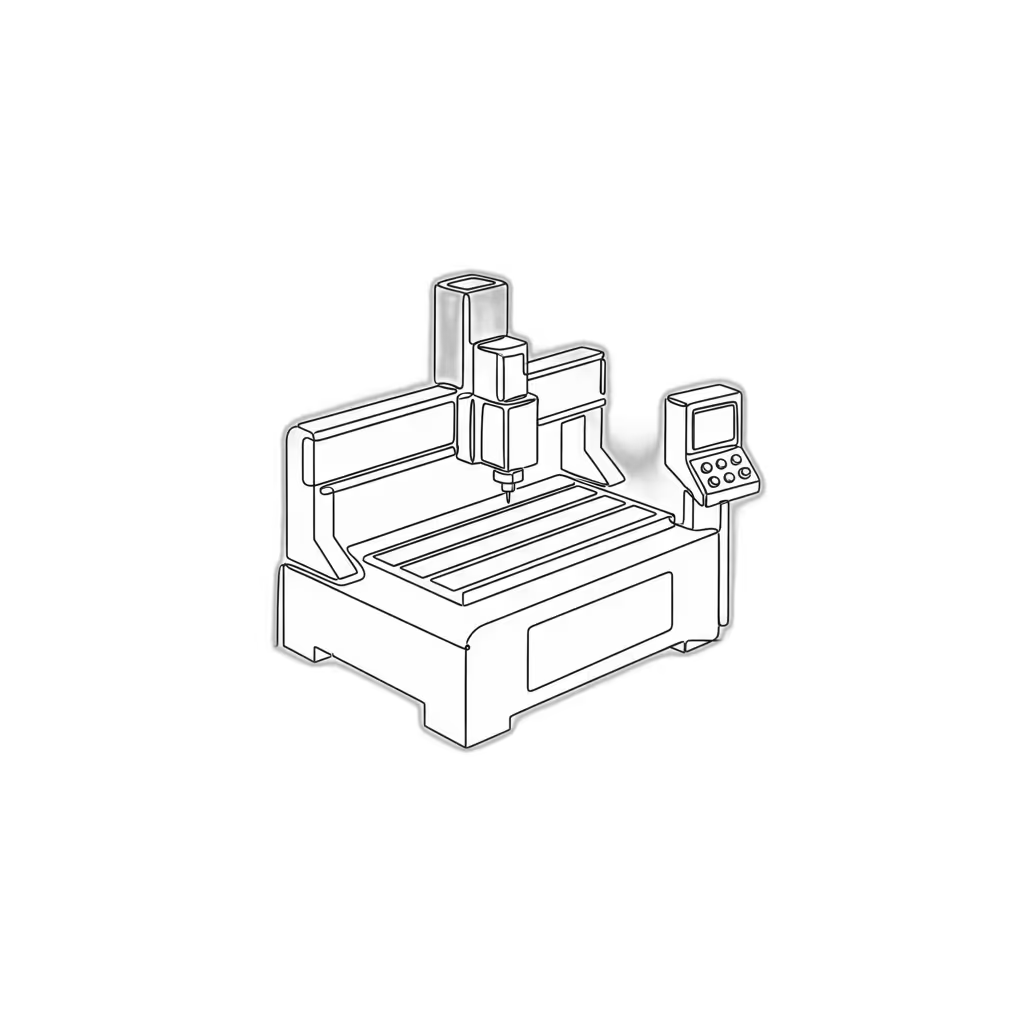






5-Star Valuation Services, Loved by Hundreds
Frequently Asked
Questions
No Frequently Asked Questions Found.
At its core, a tax deduction represents an expense that can be subtracted from total income before calculating the final tax owed. These deductions come in various forms, each with specific qualifying criteria and implications for taxpayers. Key categories include personal expenses like mortgage interest and medical costs, business operational expenses, itemized deductions, and charitable contributions.
Personal deductions cover a wide range of expenses, from housing-related costs to healthcare expenditures. Business owners can offset their taxable income by deducting ordinary and necessary operational expenses such as rent, utilities, and supplies. Taxpayers also have the option to choose between taking a standard deduction or itemizing their expenses, depending on which approach provides the most financial benefit.
Charitable contributions offer another valuable avenue for tax deductions. Donations to qualified organizations not only support meaningful causes but also provide potential tax advantages. However, it's important to understand that deductions reduce taxable income, not the tax bill directly. For instance, a deduction in the 22% tax bracket would lower tax obligations by 22 cents for every dollar deducted.
Navigating tax deductions requires careful attention to evolving tax laws, eligibility requirements, and specific limitations. Tax regulations frequently change, making it essential for taxpayers to stay informed about current guidelines and potential opportunities for tax optimization.
Understanding and strategically applying tax deductions can significantly impact an individual's or business's financial health. While the process can be complex, these deductions represent a legitimate and valuable tool for managing tax responsibilities and potentially reducing overall tax burden.
The process involves a comprehensive evaluation of an asset's worth through systematic and recognized valuation methods. Qualified appraisers employ rigorous techniques such as the cost approach, sales comparison approach, and income approach to establish an accurate and defensible market value. These methodologies consider multiple factors including asset condition, market trends, comparable sales, and potential income generation.
Taxpayers most commonly seek these appraisals for scenarios like charitable donations of property, real estate transactions, business asset reporting, and investment-related deductions. The primary objective is to create a credible, detailed report that transparently demonstrates the asset's value, supporting the taxpayer's claimed deduction.
Meticulous documentation is paramount in these appraisals. A comprehensive report must include detailed asset descriptions, precise valuation methodologies, supporting market data, and the appraiser's professional credentials. This thoroughness helps prevent potential challenges from tax authorities and ensures the appraisal meets stringent regulatory requirements.
Obtaining an appraisal from a certified professional who understands complex tax regulations is crucial. These experts provide an objective, unbiased assessment that can withstand potential IRS scrutiny, helping taxpayers navigate the intricate landscape of tax deductions with confidence and accuracy.
The process encompasses a thorough examination of complex machinery such as precision lathes, advanced CNC machines, drilling equipment, surface grinders, and various fabrication tools. Professional appraisers bring deep technical expertise to analyze these intricate pieces of equipment, considering multiple factors that influence their overall worth and operational effectiveness.
Appraisals deliver critical insights for business decision-makers, offering a detailed perspective on equipment valuation that addresses multiple strategic considerations. These assessments provide comprehensive information about current market value, potential replacement costs, operational condition, and long-term investment potential.
The evaluation process involves sophisticated analytical techniques that examine technical specifications, current market conditions, equipment age, maintenance history, and technological relevance. By integrating detailed mechanical assessment with robust economic analysis, these appraisals create a holistic view of metalworking equipment's true economic value and potential.
Stakeholders leverage these professional assessments for diverse purposes, including financial planning, insurance documentation, potential sale or acquisition strategies, and comprehensive asset management. The nuanced information generated helps organizations make informed decisions about equipment maintenance, replacement, and strategic investment in their manufacturing capabilities.
Most online appraisals begin with detailed documentation collection, where equipment owners submit high-resolution photographs, manufacturer specifications, maintenance records, and operational history. Professional appraisers utilize these digital inputs to conduct thorough initial evaluations of metalworking machinery.
For more complex assessments, live video consultations have emerged as an effective alternative to traditional in-person inspections. Using platforms like Zoom or Google Meet, appraisers can conduct real-time equipment examinations, allowing for interactive discussions and immediate clarification of technical details.
The digital appraisal process offers significant advantages, including enhanced convenience, reduced geographical limitations, and faster turnaround times. Businesses can now obtain professional equipment valuations without disrupting operational workflows or incurring extensive travel expenses.
Qualified appraisers employ standardized methodologies to ensure accuracy and compliance with professional valuation standards. The comprehensive digital approach allows for meticulous assessment of equipment condition, market value, and potential depreciation factors, delivering reliable and detailed valuation reports.
While online appraisals provide remarkable flexibility, they are most effective when equipment owners provide comprehensive and transparent documentation. Clear, detailed information remains crucial to generating precise and credible equipment valuations.
Machinery appraisers focus on large-scale industrial equipment like lathes, mills, and CNC machines. Their comprehensive approach examines equipment functionality, technological sophistication, maintenance history, and market positioning. By analyzing performance metrics and current technological trends, they determine accurate equipment valuations that reflect true economic value.
Tool and die appraisers concentrate on manufacturing precision instruments, evaluating both physical condition and operational capabilities. Their expertise requires understanding intricate manufacturing processes, tool compatibility, and the specific engineering requirements of different production environments. These professionals assess tools' potential for continued productive use and their alignment with current manufacturing standards.
Fabrication equipment specialists evaluate cutting-edge technologies like plasma and laser cutters, press brakes, and specialized manufacturing systems. Their assessments incorporate industry trends, technological advancements, and equipment efficiency metrics. By examining operational history and potential future performance, they provide nuanced valuations that consider both current market conditions and emerging technological landscapes.
Welding equipment experts analyze arc welders, MIG/TIG systems, and plasma welding technologies. Their evaluations explore equipment age, technological capabilities, compliance with industry standards, and potential for continued operational effectiveness. These appraisers understand the critical role welding equipment plays in manufacturing precision and safety.
Specialized appraisers develop deep expertise in niche sectors like automotive, aerospace, and custom fabrication. Their targeted knowledge allows for exceptionally detailed assessments that consider unique technological and operational requirements specific to their respective industries.
Ultimately, these diverse appraisal professionals provide critical insights that help businesses make informed equipment investment and maintenance decisions, bridging technical understanding with economic valuation strategies.
Financial reporting demands precise asset valuation, and metalworking equipment appraisals deliver an objective assessment of current market value. This transparency helps businesses maintain accurate balance sheets, supports equity financing efforts, and provides stakeholders with reliable information about the company's asset portfolio.
Tax compliance represents another crucial dimension of equipment appraisals. When equipment is purchased, sold, or donated, a professional valuation becomes instrumental in navigating complex tax regulations. For significant asset donations or strategic tax planning, a comprehensive appraisal ensures businesses meet regulatory requirements while optimizing potential tax benefits.
Insurance coverage relies heavily on accurate equipment valuation. Without a current, professional appraisal, businesses risk being underinsured, potentially facing substantial financial exposure in case of equipment damage, loss, or unexpected events. A detailed appraisal provides insurers with precise information, enabling appropriate coverage that truly protects the business's economic interests.
During financing and loan negotiations, equipment appraisals serve as a critical credential. Lenders depend on these professional assessments to evaluate collateral value, which directly influences loan terms, eligibility, and overall financing potential. A robust, credible appraisal can significantly streamline the lending process and enhance a business's financial flexibility.
Buy-sell agreements, mergers, and business transitions also benefit tremendously from professional equipment appraisals. These evaluations provide an impartial, comprehensive perspective on asset value, mitigating potential stakeholder disputes and facilitating smoother negotiations. By establishing a clear, defensible value, appraisals support fair and transparent business transactions.
Ultimately, a metalworking equipment appraisal transcends a mere financial exercise. It represents a strategic tool that supports financial integrity, regulatory compliance, and informed business decision-making across multiple critical operational dimensions.
Understanding Metalworking Equipment Appraisals
Understanding the value of metalworking equipment is crucial for businesses that aim to maximize their tax deductions. An appraisal serves as an official assessment of the equipment's fair market value, providing necessary documentation that can be used during tax preparation. This is particularly important when it comes to claiming depreciation or selling equipment, as the accurate valuation can significantly impact tax obligations and deductibility. The appraisal process involves a detailed examination of the assets, including their condition, age, and market demand, allowing for an informed valuation.
The methodology for appraising metalworking equipment can vary based on several factors, including the type of machinery and its specific use in operations. Common approaches include the cost approach, which assesses the current replacement cost minus depreciation, and the sales comparison approach, which evaluates the value based on similar equipment sold in the market. Skilled appraisers will also consider particular characteristics of the equipment, such as brand reputation and technological advancements, which are essential in determining an accurate value. Understanding these different methods enables business owners to appreciate how their assets are valued and the importance of professional assessments.
It is also important to recognize that an appraisal not only benefits businesses for tax purposes but also enhances financial planning and decision-making. Having a clear valuation of metalworking equipment can guide future investments, asset management, and overall business strategy. In case of audits, having a certified appraisal on file can provide strong evidence of valuation claims presented in financial statements or tax returns. Thus, investing in a thorough appraisal can yield long-term benefits that extend beyond immediate tax deductions, fostering a more robust and informed approach to asset management.
Why Appraisals Matter for Tax Deductions
Understanding the significance of appraisals for tax deductions is crucial for business owners and individuals who own metalworking equipment. An accurate appraisal provides a documented value of your equipment, which is essential for reporting purposes when claiming tax deductions. It ensures compliance with IRS guidelines, preventing potential audits or adjustments that could arise from incorrectly reported equipment values.
When it comes to metalworking equipment, depreciation is a key factor to consider. Appraisals help in determining the fair market value of the equipment at the time of purchase and throughout its useful life. This valuation not only aids in tax deductions but can also yield insights into the replacement costs and overall financial positioning of a business.
Moreover, a professional appraisal can enhance a business's credibility and transparency with investors and lenders. By demonstrating an accurate and current valuation of metalworking assets, businesses can make informed decisions about financing and budgeting. In turn, this can positively impact growth strategies and operational efficiency, ultimately benefitting the bottom line.
Types of Metalworking Equipment Subject to Appraisal
Metalworking equipment encompasses a wide variety of machines and tools utilized in the fabrication and alteration of metal materials. Common types include lathes, milling machines, grinders, and welding equipment, each serving specific functions in the manufacturing process. Additionally, ancillary equipment such as presses, bandsaws, and CNC (Computer Numerical Control) machines are integral for precision work in modern workshops. Understanding the different categories of metalworking equipment is crucial when determining their value for appraisal purposes, especially for tax deductions.
In the realm of metalworking, not all equipment holds the same value. Factors that influence appraisal value include the manufacturer's brand, the machine's age, its overall condition, and technological advancements. For instance, a newer CNC milling machine may command a higher appraisal value compared to an older, manual lathe, even if the latter is still operational. Appraisers often rely on historical data and market trends to evaluate these differences accurately, ensuring a fair assessment for tax purposes.
It is also essential to consider the specific application of the metalworking equipment when seeking an appraisal. Equipment specifically designed for niche industries or specialized tasks may have unique valuation considerations. Additionally, any modifications or customizations made to the equipment can also impact its marketability and appraisal value. As such, engaging with knowledgeable appraisers who understand both general and specialized equipment is vital for obtaining an accurate assessment.
The Appraisal Process Explained
The appraisal process for metalworking equipment typically begins with an in-depth evaluation by a qualified appraiser who has specialized knowledge in the field. Initially, the appraiser will gather essential information about the equipment, including its make, model, age, condition, and any unique features that may influence its market value. This information is critical, as it helps establish a baseline for comparisons with similar equipment in the market, thus ensuring that the appraisal reflects a fair and accurate evaluation.
Following the initial assessment, the appraiser may conduct a market analysis, examining recent sales data and industry trends to contextualize the value of the equipment. This may also involve site visits to observe equipment in operation or detailed analysis of maintenance records that can affect value. After considering all relevant factors, the appraiser compiles a comprehensive report detailing the findings, which can be used to substantiate tax deductions, secure financing, or make informed strategic business decisions.
Choosing the Right Appraiser for Metalworking Equipment
Selecting the right appraiser for your metalworking equipment is paramount to ensuring an accurate and fair evaluation. An experienced appraiser will not only have a strong understanding of the metalworking industry but will also possess knowledge of the specific machinery and tools involved. They should be familiar with both the current market trends and relevant valuation methodologies that apply to equipment like lathes, milling machines, and CNC equipment. This expertise allows them to provide a comprehensive appraisal that reflects true value, which is essential not only for tax deductions but for overall business strategy as well.
When seeking an appraiser, consider their credentials and professional affiliations. Membership in recognized appraisal organizations signals a commitment to ethical standards and ongoing education. Furthermore, verify their track record in appraising similar types of equipment to ensure they have practical experience. Recommendations from industry peers can also be invaluable in identifying a trustworthy appraiser who understands the nuances of metalworking machinery valuations.
In addition to qualifications, communication plays a critical role in the appraisal process. A good appraiser should be able to explain their findings and the basis of their valuation in clear, understandable terms. This transparency is crucial, especially if the appraisal will support tax deduction claims or be contested during audits. Establishing a rapport with your appraiser can facilitate a smoother appraisal process, allowing you to not only get the most accurate valuation but also gain insights into your metalworking equipment’s worth in the marketplace.
Factors Influencing the Value of Metalworking Equipment
The value of metalworking equipment is influenced by several key factors, including its age, condition, and technological advancements. Older machinery may hold sentimental value or historical significance, but often lacks the features and efficiencies of modern equipment, which can affect its market value. The condition of the equipment plays a crucial role; well-maintained machines with regular servicing are generally valued higher than those that show signs of wear and tear. Furthermore, the equipment's operational efficiency and the potential for upgrade or modification can significantly impact its worth.
Market demand is another crucial factor in determining the value of metalworking equipment. Equipment that is versatile and capable of performing multiple functions tends to be more desirable, especially in a fluctuating market where businesses need to optimize their operations. Additionally, the availability of comparable equipment in the marketplace can influence pricing; if demand outstrips supply, values can rise accordingly. Ultimately, understanding these factors is essential for accurate appraisal, particularly for tax deduction purposes where precise value estimation is critical.
Documenting Your Metalworking Equipment for Appraisal
When preparing for a metalworking equipment appraisal, accurate documentation is essential. This includes keeping detailed records of each piece of equipment, including its make, model, year of manufacture, and any unique specifications. Additionally, it's beneficial to gather information on prior maintenance and repair history, as well as any modifications that may have been carried out. A comprehensive equipment inventory not only streamlines the appraisal process but also helps ensure that the value estimated aligns with the current market trends.
In addition to documenting your equipment, it's important to gather any relevant financial statements and tax returns that may impact the appraisal. Having an understanding of the equipment's purchase price, depreciation, and operational costs can provide a clearer picture of its current market value. Furthermore, consider compiling photographs of the equipment, showcasing its condition and any special features. This evidence will contribute to a more thorough and accurate appraisal, ultimately supporting your tax deduction claims.
Common Misconceptions About Equipment Appraisals
One common misconception about equipment appraisals is that they are solely for large businesses or high-value assets. In reality, any business that utilizes metalworking equipment can benefit from an appraisal, regardless of its size or the asset's worth. Smaller enterprises often overlook the value of their equipment, missing out on potential tax deductions and financial opportunities. Understanding the true worth of assets can enhance decision-making, cash flow management, and overall business strategy.
Another prevailing myth is that appraisals are only necessary during the sale or purchase of equipment. However, regular appraisals should be part of a sound financial strategy, particularly for tax purposes. They not only help determine fair market value for depreciation calculations but also provide documentation for tax deductions and potential audits. By establishing a clear and accurate valuation of assets, business owners can make informed decisions that align with their financial goals.
How to Use Appraisals for Tax Deductions
Understanding how to use appraisals for tax deductions related to metalworking equipment can significantly impact a business's financial strategy. When an appraisal establishes the fair market value of your equipment, it provides an objective basis to claim deductions such as depreciation or losses when the equipment is sold or disposed of. This valuation is crucial for compliance with IRS regulations, ensuring that taxpayers are not overstating their deductions and facing potential penalties.
In instances where metalworking equipment is donated or used for specific business purposes, an appraisal can also substantiate deductions for charitable contributions. Accurate valuations help categorize equipment correctly, whether it falls into the category of new purchases, used machinery, or obsolete assets. Furthermore, the insights gained from conducting an appraisal can inform decisions about upgrades, sales, or maintenance, ultimately enhancing operational efficiency and financial accountability.
It's important to note that appraisals must be completed by qualified professionals to hold weight in the eyes of the IRS. The appraiser should provide a detailed report documenting their approach, methodology, and conclusion, ensuring the process reflects an unbiased estimate of value. By leveraging professional appraisals, businesses can maximize their tax benefits while maintaining adherence to tax regulations, making sound financial choices based on credible data.
Preparing for an IRS Audit: The Role of Appraisals
When it comes to preparing for an IRS audit, having accurate appraisals of your metalworking equipment can play a crucial role in substantiating your tax deductions. Detailed appraisals provide a clear, unbiased assessment of your equipment’s fair market value, which is indispensable when claiming deductions involving business assets. An appraiser with relevant expertise will consider various factors such as age, condition, market demand, and comparable sales to determine a justifiable value. This level of documentation not only supports your case during an audit but also demonstrates due diligence in maintaining accurate financial records.
In addition to protecting against potential audit inquiries, a well-documented appraisal offers peace of mind and financial clarity for business owners. Should disputes arise regarding asset valuations, having a credible appraisal can serve as a pivotal piece of evidence in your defense. Furthermore, appraisals can also provide insights into the overall health and value of your business, allowing for informed decision-making. Engaging with qualified appraisers to obtain precise evaluations of your metalworking equipment is an investment in both compliance and strategic business management.
Case Studies: Successful Tax Deductions from Equipment Appraisals
Case studies of successful tax deductions from equipment appraisals reveal the practical benefits of obtaining accurate valuations for metalworking equipment. For instance, a manufacturing company that had undergone expansion realized significant savings by leveraging a comprehensive appraisal of their new machinery. The appraiser determined the fair market value of the equipment, enabling the company to claim an appropriate depreciation deduction. This meticulous documentation not only alleviated potential issues with the IRS but also enhanced the company's financial strategy moving forward.
Another example involves a small metal fabrication business that faced difficulties in reporting their asset values for tax purposes. By enlisting an appraiser, they were able to accurately assess their tools and equipment, which had previously been undervalued on their financial statements. As a result, they successfully adjusted their tax liabilities, ultimately freeing up valuable resources for reinvestment in the business. These case studies highlight that thorough appraisals can have substantial financial impacts, as they allow business owners to maximize tax deductions while ensuring compliance with tax regulations.
Maintaining Your Equipment Value Over Time
To maintain the value of your metalworking equipment over time, diligent maintenance and thoughtful upgrades are essential. Regular servicing can significantly extend the lifespan of machines, reducing the likelihood of costly repairs that may diminish their worth. Additionally, keeping meticulous maintenance records can not only facilitate smoother appraisals but also demonstrate the care taken to preserve equipment integrity, which is beneficial for tax purposes.
Upgrading equipment with modern technology or features can also enhance its resale value and overall appeal. While it's crucial to invest wisely, strategically updating your equipment to include advanced functionalities can make a substantial difference in how it is perceived in the market. Staying informed about industry trends and advancements can help you make educated decisions on when to invest in new technologies, ensuring that your equipment remains competitive and retains its value over time.
View all Locations
APPRAISEITNOW APPRAISERS ARE BEST-IN-CLASS & CREDENTIALED BY LEADING APPRAISAL ORGANIZATIONS LIKE THE ISA, ASA, & MORE.







.svg)










